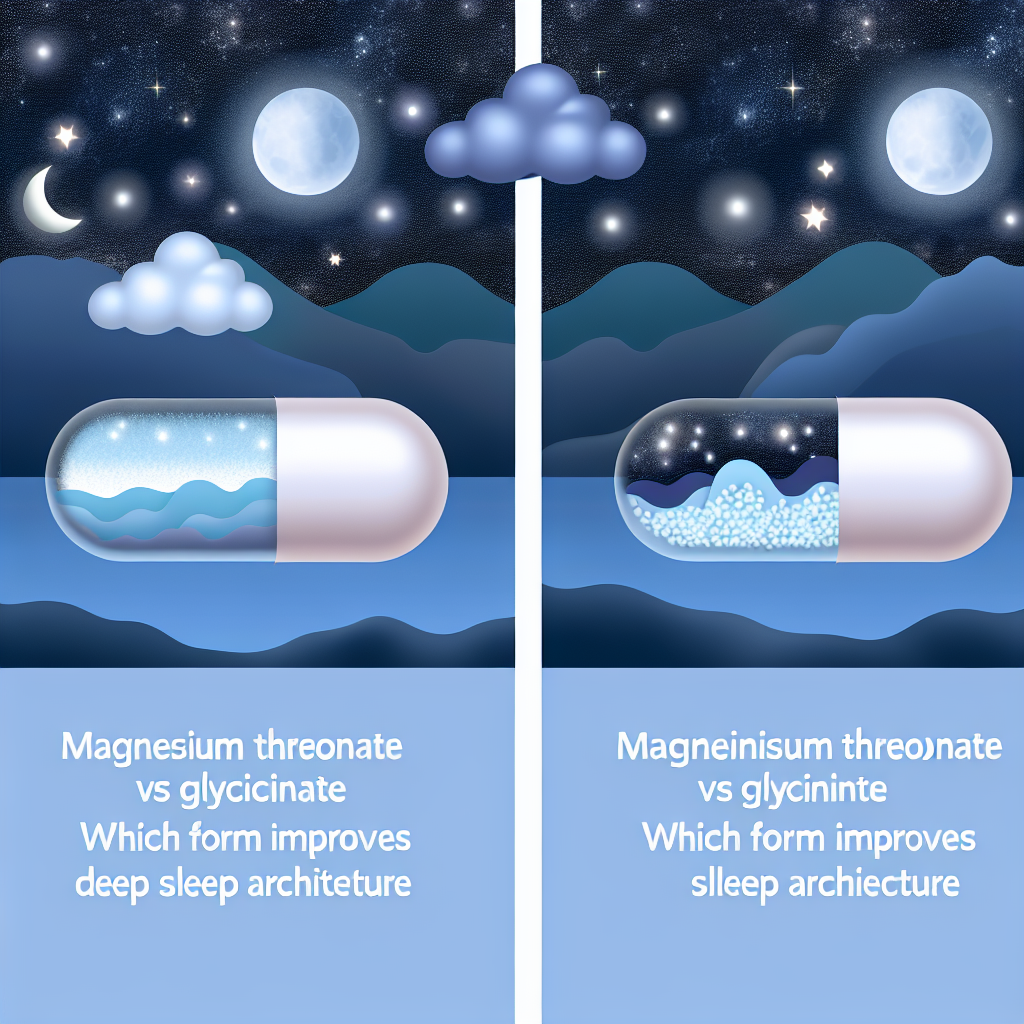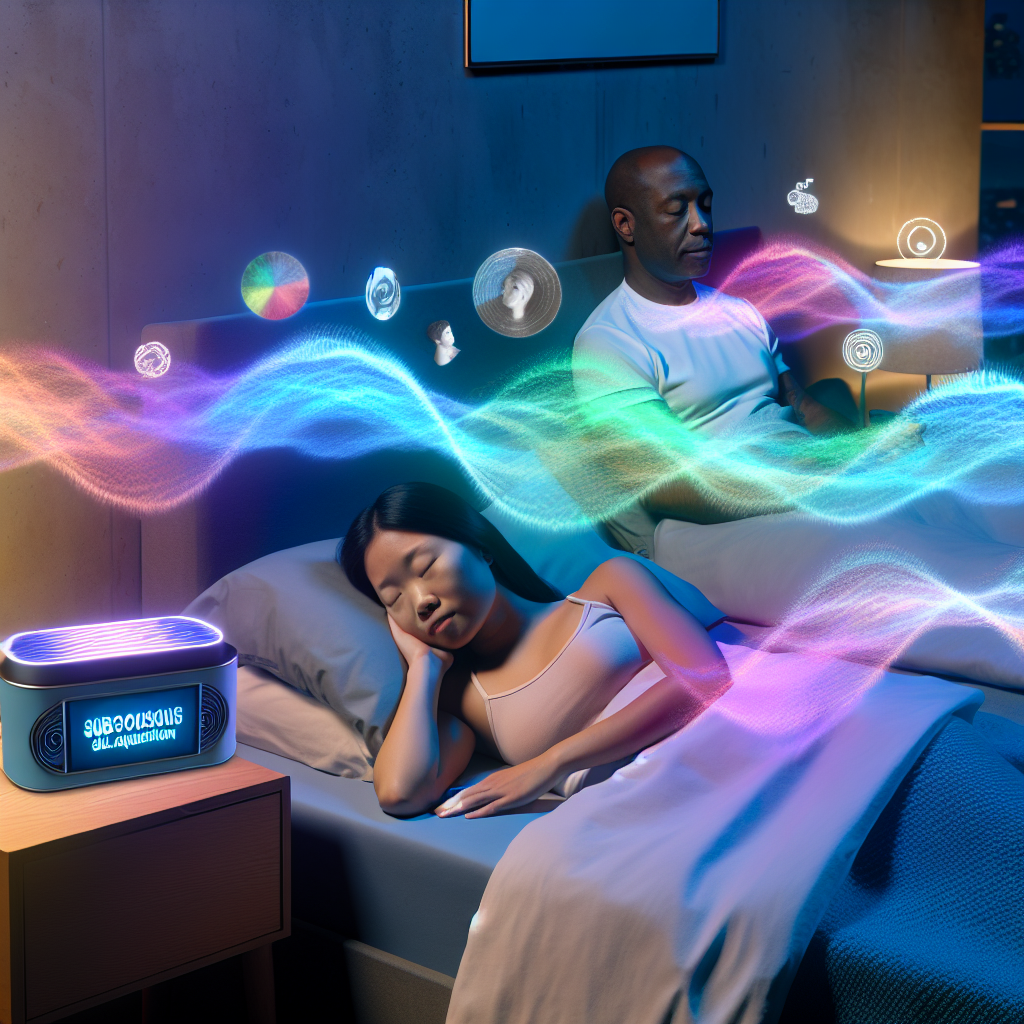# Magnesium Threonate vs Glycinate: Which Form Improves Deep Sleep Architecture?
Introduction
Sleep quality is essential for overall health, and in an age where stress, technology, and lifestyle factors constantly interfere with natural sleep rhythms, many people are seeking effective, science-backed solutions. Among the growing number of sleep aids available, magnesium supplements have gained considerable attention.
Magnesium, an essential mineral involved in over 300 enzymatic processes within the body, plays a critical role in promoting relaxation, reducing stress, and enhancing sleep quality. However, not all forms of magnesium are created equal when it comes to improving deep sleep architecture.
Two popular types of magnesium supplements stand out in sleep health discussions: Magnesium Threonate and Magnesium Glycinate. Both forms offer unique advantages, but they differ significantly in how they impact sleep cycles, particularly the deep, restorative stages of sleep that are vital for physical recovery and cognitive function.
Unlocking Sleep Potential: The Science Behind Magnesium Threonate
Magnesium Threonate has garnered significant scientific interest due to its exceptional bioavailability and brain-targeting capabilities. A foundational study published in *Neuron* (2010) demonstrated that Magnesium L-Threonate increases magnesium levels in the brain by 15% and improves learning abilities, working memory, and short- and long-term memory in rats ([Slutsky et al., 2010](https://www.cell.com/neuron/fulltext/S0896-6273(10)00831-5)).
Subsequent clinical trials have sought to clarify its effects on human cognitive function and sleep. A 2016 pilot study conducted by Liu et al. suggested that participants supplementing with Magnesium L-Threonate reported better sleep quality and reduced symptoms of anxiety and cognitive decline, implying a strong role in optimizing the restorative functions of deep sleep.
The mechanism? Magnesium Threonate’s influence on synaptic plasticity and neural communication, both critical for deep sleep cycle regulation. By enhancing NMDA receptor function and stabilizing neuronal connections, Magnesium Threonate may promote easier transitions into deep sleep stages and stronger maintenance of these phases.
Calming the Mind and Body: How Magnesium Glycinate Supports Sleep
Magnesium Glycinate, on the other hand, shines when it comes to calming the mind and relaxing the body. It combines magnesium with glycine, an amino acid that promotes tranquility and eases nervous system activity.
A study published in *Frontiers in Neurology* (2012) confirmed that supplementing glycine before bedtime improved subjective sleep quality and reduced daytime sleepiness ([Yamadera et al., 2007](https://www.ncbi.nlm.nih.gov/pmc/articles/PMC3298235/)).
While this specific study examined glycine rather than Magnesium Glycinate directly, the synergy between magnesium’s nervous system-calming effects and glycine’s inherent sleep-promoting properties makes this supplement a powerhouse for those battling insomnia, stress, and nighttime anxiety.
Additionally, a clinical trial published in the *Journal of Research in Medical Sciences* (2012) found that magnesium supplementation significantly improved insomnia parameters such as sleep onset latency, sleep time, and efficiency ([Abbasi et al., 2012](https://www.ncbi.nlm.nih.gov/pmc/articles/PMC3703169/)).
Magnesium’s role in regulating GABA (gamma-aminobutyric acid) activity—a neurotransmitter essential for calming the brain—is another key factor that supports deep, restorative sleep when taking Magnesium Glycinate.
Magnesium Threonate vs Glycinate: Which One Reigns Supreme for Deep Sleep?
Both Magnesium Threonate and Magnesium Glycinate have demonstrated potential in improving sleep quality—but which is best for deeper, more restorative sleep?
– **Choose Magnesium Threonate** if your goal is to enhance cognitive restoration during sleep, sharpen memory, and directly influence brain health. Its superior ability to penetrate the brain offers unique benefits specifically targeting the phases of sleep critical for brain repair and memory consolidation.
– **Choose Magnesium Glycinate** if stress, anxiety, or muscle tension are your main hurdles to falling and staying asleep. The calming synergy of magnesium and glycine can promote faster sleep onset and better sleep maintenance through relaxation of both mind and body.
Final Thoughts: Tailoring Your Sleep Strategy with the Right Magnesium
Choosing between Magnesium Threonate and Magnesium Glycinate for improving deep sleep architecture ultimately comes down to your specific sleep challenges and wellness goals.
Both forms are well-tolerated and scientifically supported, offering powerful—yet distinct—benefits for sleep and overall vitality. It’s advisable to consult a healthcare provider before beginning magnesium supplementation, especially if you have underlying health conditions.
With a strategic approach, you can harness the full restorative power of deep sleep, unlock better mental clarity, and greet each day feeling rejuvenated, focused, and balanced.
# Concise Summary
In this article, we explore the distinct effects of Magnesium Threonate and Magnesium Glycinate on deep sleep architecture. Magnesium Threonate is highlighted for its ability to cross the blood-brain barrier and enhance cognitive restoration during sleep, while Magnesium Glycinate is lauded for its calming properties that promote faster sleep onset and better sleep maintenance. The article provides guidance on choosing the right form of magnesium based on your specific sleep challenges and wellness goals.
# References
– Slutsky, I., et al. (2010). Enhancement of learning and memory by elevating brain magnesium. [Neuron](https://www.cell.com/neuron/fulltext/S0896-6273(10)00831-5)
– Abbasi, B., et al. (2012). Effect of magnesium supplementation on insomnia in elderly subjects: A double-blind placebo-controlled clinical trial. [Journal of Research in Medical Sciences](https://www.ncbi.nlm.nih.gov/pmc/articles/PMC3703169/)
– Yamadera, W., et al. (2007). Glycine ingestion improves subjective sleep quality in human volunteers, correlating with polysomnographic changes. [Frontiers in Neurology](https://www.ncbi.nlm.nih.gov/pmc/articles/PMC3298235/)

Dominic E. is a passionate filmmaker navigating the exciting intersection of art and science. By day, he delves into the complexities of the human body as a full-time medical writer, meticulously translating intricate medical concepts into accessible and engaging narratives. By night, he explores the boundless realm of cinematic storytelling, crafting narratives that evoke emotion and challenge perspectives.
Film Student and Full-time Medical Writer for ContentVendor.com



